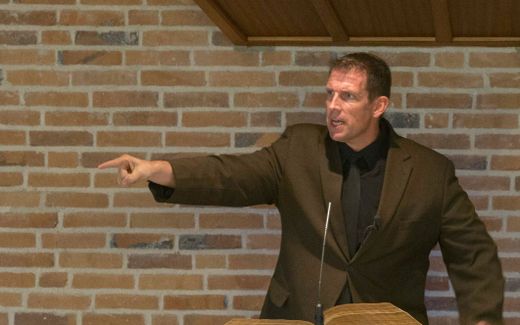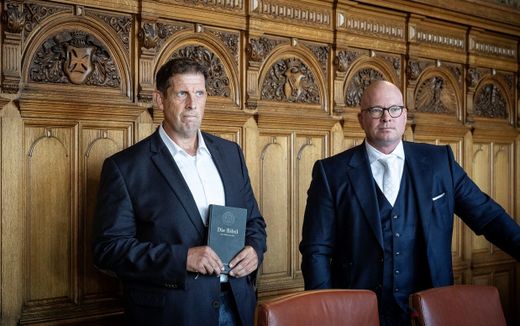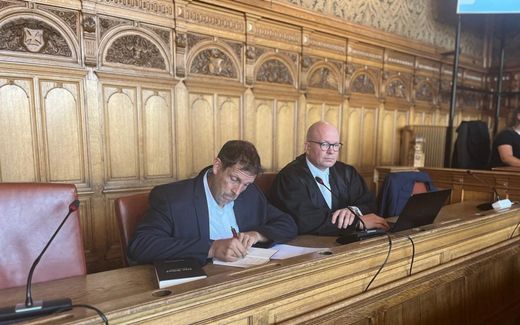Book about pastor Latzel's case in Germany: Character assassination
04-11-2025
Central Europe
Addy de Jong, RD
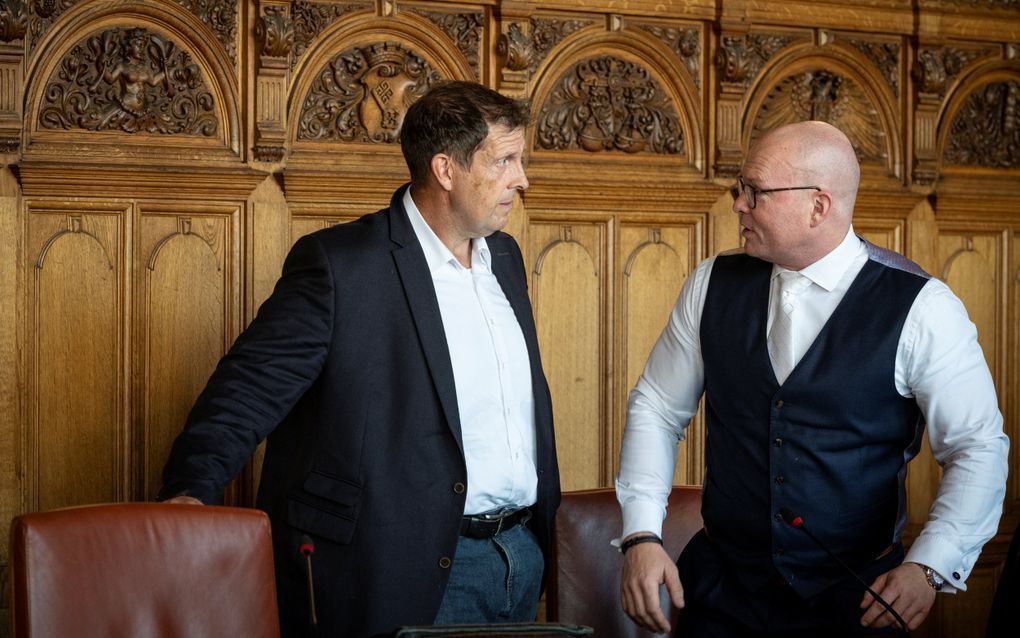
Pastor Latzel (left) in court with his attorney. Photo Idea, Alexander Stambke
Central Europe
The German judicial system engaged in ‘malicious distortion’ in the trial against Bremen pastor Olaf Latzel, David Wengenroth writes in a recently published book.
The lawyer and journalist Wengenroth, who works for the Christian German press agency Idea, co-authored the book Der Fall Latzel – Ein Rufmord mit Hilfe der Justiz (The Latzel Case – Character Assassination with the Help of the Justice System) with Felix Böllmann. The latter is director of the European legal department of Alliance Defending Freedom (ADF) International, based in Vienna.
One of the main arguments of the book is that the lawsuit against the Rev. Olaf Latzel, which lasted four years and ended in a settlement in August 2024, was indeed initiated in 2020 by the LGBT lobby (supported by the Protestant Church in Germany, EKD), but was then irresponsibly pursued and hyped by the judiciary and the German media.
The authors call the accusation levelled against pastor Latzel “absurd”. According to them, it was clear to legal experts from the outset that the charge that the pastor was guilty of “inciting the people” or “inciting hatred” was utterly unfounded.
Vandalised
“Yes, Mr. Latzel made some unfortunate statements about LGBT ideology and the activist gay lobby during a marriage seminar for his own congregation in 2019”, says Wengenroth. “But it is crystal clear that no churchgoer or seminar participant caused a disturbance or attacked people with words or deeds after listening to that lecture. On the contrary, church services of the Martini congregation were disrupted, the church in Bremen was vandalised, and Latzel was threatened, and his car was scratched.”
Whereas a quick acquittal was expected, the pastor instead endured four years of judicial and media torment. The two authors argue that blatant bias on the part of the judiciary and the media played a role in this. To support their argument, they quote the press release issued by the public prosecutor’s office in Bremen in 2020. It stated, among other things, “that the suspect generalises homosexuals as criminals and people who deviate from the supposed norm in terms of gender identity as gender filth”.
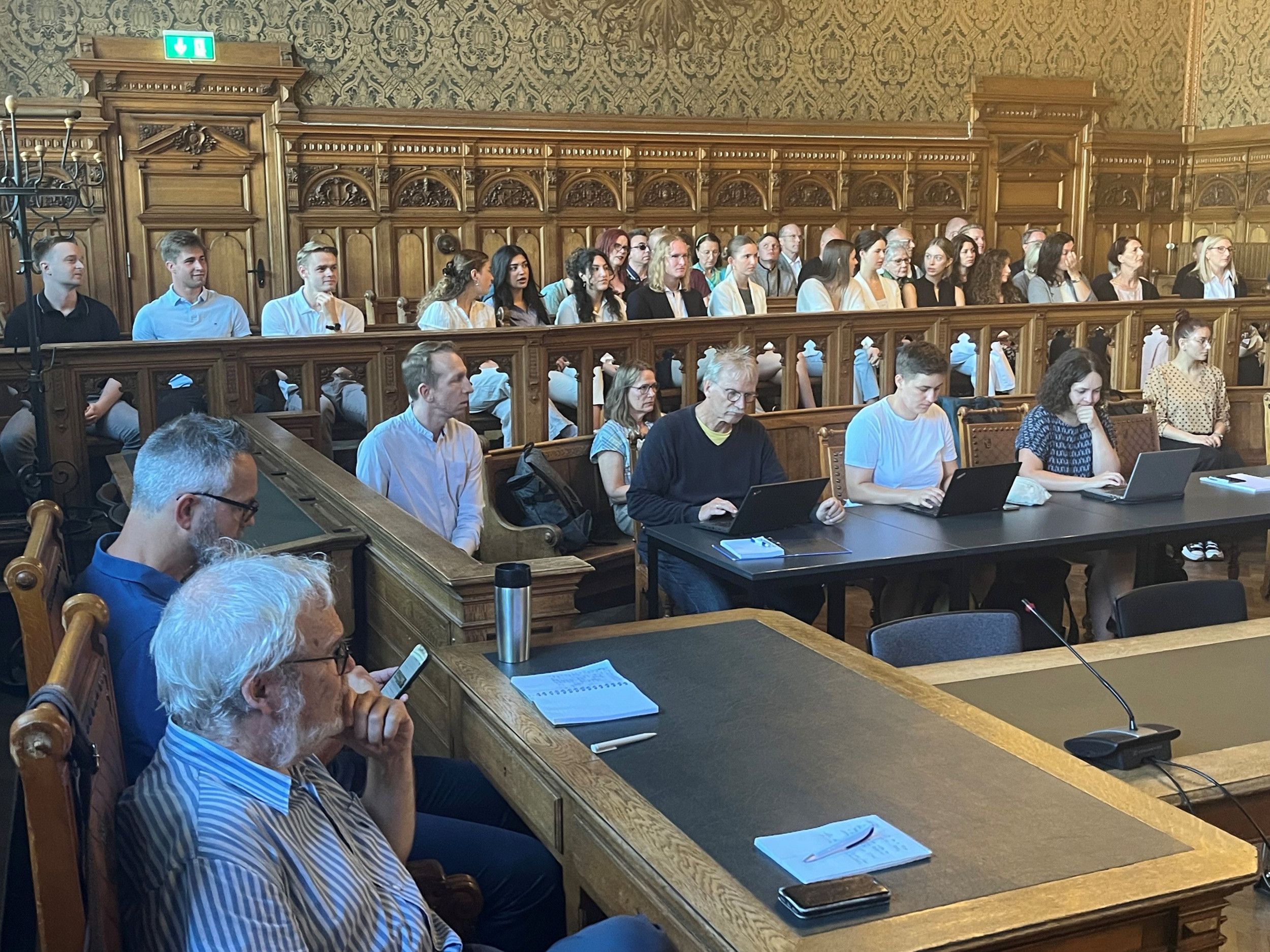
“These two sentences are a malicious distortion of what pastor Latzel actually said”, Wengenroth points out. “You could also say they were simply lies. Everyone could see that the pastor was only targeting a specific group of aggressive gay activists and gender ideology, not specific LGBT people.”
How did the judiciary arrive at such a biased approach? “This has to do with a general mindset among the elite, a culture that has been evident at universities for years. Left-wing forces tend to dominate there. There is often a culture of cancellation, in which people attempt to ban uncomfortable or dissenting opinions from public debate.
These forces, often supported by the left-wing media, are particularly opposed to Christians, conservatives and right-wing liberals. Because the Latzel case is not an isolated one. In our book, Felix Böllmann and I mention several other similar issues that have arisen in Germany in recent years.”
In November 2024, for example, the police and judicial authorities took disproportionately harsh action against a retired Bundeswehr soldier who had distributed a photo of the Minister of Economic Affairs, Robert Habeck, via the internet. He had pasted the logo of the Schwarzkopf shampoo brand under the photo, but playfully changed it to Schwachkopf (dumbass or moron, ed.).
Many more examples demonstrate that freedom of expression is under pressure in Germany, particularly for Christians, conservatives, and liberals. It is noteworthy that there are hardly any cases in which statements made by Muslims or left-wing individuals are addressed.”
In your book, you also describe the harmful role that the media play in these kinds of issues. “The media in Germany tend to be left-wing. It is not uncommon for them to contribute significantly to smear campaigns against the aforementioned groups or individuals. In May 2020, Der Spiegel published an article entitled “Pastor from Bremen preaches hatred”. Die Zeit wrote in October of that year about “Sowing hatred in the name of the Lord”. And for the Berlin daily Tageszeitung, pastor Latzel was simply “Pastor Hate”. In this way, they set a harmful tone in the public debate.”
You would expect the media not to follow interest groups, and also the judiciary, uncritically. “Certainly. But that becomes more difficult if they, too, are biased. And another factor that plays a role here is that the public prosecutor’s office enjoys a good reputation in Germany. Unlike in the US, for example, where prosecutors often want to secure a conviction at any cost, the public prosecutor’s office in Germany is seen as just about the most objective authority in the world. That good reputation is decisive for the public reception of criminal cases.”
Latzel ultimately pushed for a settlement. Isn’t that a pity, given that it now remains unclear whether or not the pastor was allowed to make these statements? “Well, it would have been much better, of course, if the trial had ended in a clear acquittal. But I understand very well that Mr. Latzel has given up the fight. The legal proceedings could have lasted another three, four or five years. And if he had lost, he would probably have had to pay the legal costs, which could easily have amounted to 100,000 euros or more. That would have ruined him financially. Naturally, he did not want to take that risk.”
This article was translated by CNE.news and published by the Dutch daily Reformatorisch Dagblad on October 22, 2025
Related Articles


